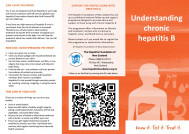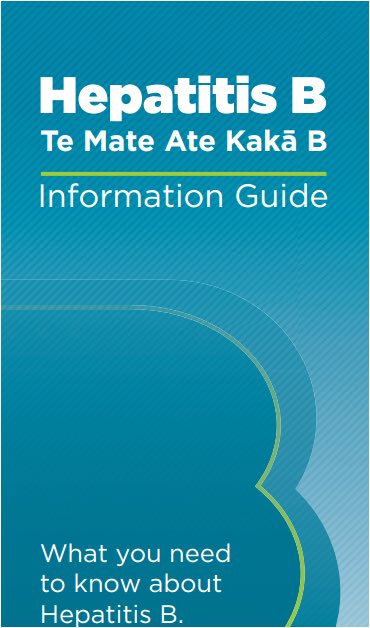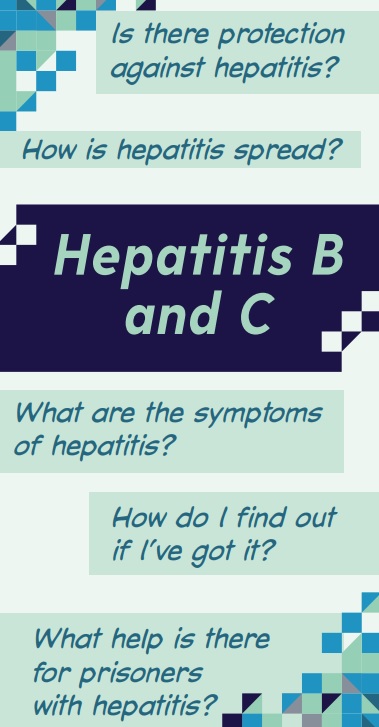- Most adults who get hepatitis B recover fully. This is called acute hepatitis B.
- If you get diagnosed with chronic hepatitis B, this means that your immune system was not able to get rid of the hepatitis B virus and it's still in your blood and liver.
- The risk of developing chronic hepatitis B is related to the age at which you first become exposed to the hepatitis B virus. Most babies or children who are infected with hepatitis B are unable to clear the virus from their liver and it stays there for the rest of their life.
- Chronic hepatitis B infection can cause significant damage, eg, cirrhosis, liver failure or liver cancer. With cirrhosis, your liver becomes small and hard and if untreated, loses its function. This leads to bleeding from your gut and liver failure.
- Most people with chronic hepatitis B can expect to live a long and healthy life because there are medicines that can control and even stop the hepatitis B virus from further damaging your liver.
Love our website? We do too. Did you know we're a charity? Donate now to help us keep it free for everyone in Aotearoa New Zealand.
Chronic hepatitis B
Key points about chronic hepatitis B
- Hepatitis B (pokenga ate) is a virus that causes inflammation of your liver.
- Chronic hepatitis B is when you test positive for the hepatitis B virus for more than 6 months after your first blood test result.
- Chronic hepatitis B infection can cause significant damage, eg, cirrhosis, liver failure or liver cancer.
- Most people with chronic hepatitis B can expect to live a long and healthy life because there are medicines that can control and even stop the hepatitis B virus from further damaging your liver.

The risk of developing chronic hepatitis B is related to the age at which you first become exposed to the hepatitis B virus. Most babies or children who are infected with hepatitis B are unable to clear the virus from their liver and it stays there for the rest of their life:
- Infants who are infected at age less than 1 year: 9 out of every 10 infants will develop chronic hepatitis B infection.
- Children who become infected at aged 1 to 4 years: 3 of every 10 children will develop chronic hepatitis B infection.
- Adults who get hepatitis B: less than 5 out of every 100 adults will develop chronic hepatitis B infection.
Also at higher risk are:
- people born in Aotearoa New Zealand before national vaccination was introduced in 1988
- immigrants from countries with limited access to vaccination
- people of Māori, Pacific Peoples, South-East Asian or Chinese ethnicity.
There are several blood tests available that can identify whether you are currently infected or have developed immunity to hepatitis B. Your sexual partners and people living in your household should also get tested. If you're diagnosed with chronic hepatitis B infection, you will require blood and liver tests at least every 6 months for the rest of your life to assess the condition of your liver.
Learning that you have chronic hepatitis B infection can be very upsetting. Because most people don't have symptoms and can be diagnosed decades after their initial exposure to the hepatitis B virus, it can be a shock and a surprise to be diagnosed with chronic hepatitis B. Fortunately there are medicines that can control and even stop the hepatitis B virus from further damaging your liver.
If you have been diagnosed with chronic hepatitis B, contact the Hepatitis Foundation of New Zealand(external link) freephone 0800 332 010. They provide a free hepatitis B follow-up programme with information, support and regular blood tests.
Chronic hepatitis B can't be cured and life-long treatment is usually required. Long-term treatment doesn't cause many side effects and will enable you to live longer. The treatments aim to prevent the virus being active and multiplying in your liver and causing long-term liver damage and liver cancer. In Aotearoa New Zealand the main medicines to treat chronic hepatitis B are entecavir and tenofovir tablets. Pegylated interferon (Pegasys) injection is used for some people.
Entecavir tablets are taken once a day. Nearly everyone who takes entecavir achieves viral suppression (undetectable levels of hepatitis B) and improved liver blood tests. However, the virus is still present in your blood. Read more about entecavir.
Tenofovir tablets are also taken once a day. Tenofovir is a suitable option for treatment of HIV infection and chronic hepatitis B and for pregnant women who have chronic hepatitis B. Read more about tenofovir and hepatitis B and pregnancy.
Reduce your alcohol intake
Regular and heavy alcohol intake will increase liver damage and your risk of cirrhosis and dying from a complication of hepatitis B. It's recommended you keep alcohol intake to a minimum to reduce the risk of developing hepatitis-related complications. Reducing your alcohol intake is the single most important lifestyle change you can make. People with cirrhosis are advised not to drink alcohol at all.
Reduce your cannabis use
Heavy cannabis use is associated with increased liver scarring. By reducing or stopping cannabis use, you will slow the progression of liver damage.
Reduce your risk of fatty liver disease
Fatty liver is a condition where excess fat builds up inside the cells in your liver. Fatty liver may speed up the progression of scarring if you have chronic hepatitis B. Maintaining a healthy lifestyle will prevent this.
Avoid fatty liver by:
- staying within a healthy weight range
- avoiding foods and beverages containing a lot of fats and/or sugars
- being active every day
- eating a healthy, well-balanced diet
- managing your diabetes well, if you have it
- taking steps to reduce your risk of developing diabetes by maintaining a healthy weight, being active every day and eating a healthy diet.
Image credit: Canva
Apps reviewed by Healthify
You may find it useful to look at some Self-management and healthy living apps, Alcohol use apps and Quit smoking apps.
The Hepatitis Foundation of NZ(external link) provides a follow-up programme for people with hepatitis B. Their community nurses help follow-up people in the community, through home visits, to provide education and support to individuals and families. It's a free programme.
Hepatitis B(external link) The Hepatitis Foundation NZ
Hepatitis B(external link) The Immunisation Advisory Centre, NZ
Hepatitis B(external link) Health New Zealand | Te Whatu Ora
Apps
Self-management and healthy living apps
Alcohol use apps
Quit smoking apps
Resources
Hepatitis B and the vaccine(external link) The Hepatitis Foundation of NZ
Understanding chronic hepatitis B The Hepatitis Foundation of NZ
Childhood immunisation booklet(external link) HealthEd, NZ
Hepatitis B and C(external link) HealthEd, NZ
Hepatitis B – personal record(external link) HealthEd, NZ
References
- Hepatitis B – treatments now available for primary care(external link) BPAC, NZ, 2018
- Hepatitis B for health professionals(external link) Hepatitis Foundation NZ
Hepatitis B – treatments now available for primary care(external link) BPAC, NZ, 2018
A spotlight on the key causes of chronic liver disease(external link) BPAC, NZ, 2022
Hepatitis B(external link) Health New Zealand | Te Whatu Ora
Hepatitis B patient referrals(external link) The Hepatitis Foundation of NZ
Hepatitis B for health professionals(external link) The Hepatitis Foundation of NZ
Hepatitis resources for health professionals(external link) The Hepatitis Foundation of New Zealand
Communicable Disease Control Manual – hepatitis B(external link) Health New Zealand | Te Whatu Ora, NZ, 2024
Apps
Self-management and healthy living apps
Alcohol use apps
Quit smoking apps
Brochures

Understanding chronic hepatitis B
The Hepatitis Foundation of NZ

Ministry of Health, NZ, 2012

HealthEd, NZ, 2019
Credits: Healthify editorial team. Healthify is brought to you by Health Navigator Charitable Trust.
Reviewed by: Rachel Li and Yini Ye, Clinical Nurse Specialists, Middlemore Hospital
Last reviewed:






